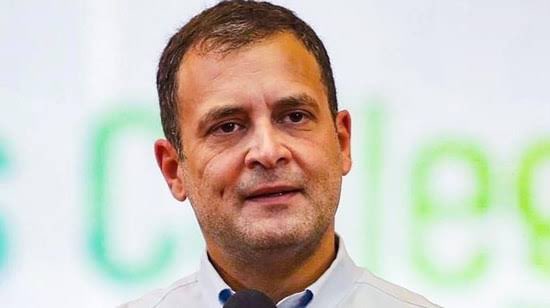Bombay High Court dismisses plea seeking transcript of Rahul Gandhi’s speech blaming RSS for assassination of Mahatma Gandhi to be taken as evidence in Defamation Case

The Bombay High Court today dismissed a petition filed by Rashtriya Swayamsevak Sangh (RSS) worker challenging the Magistrate’s Court order which had dismissed his plea seeking that transcript copy the 2014 speech made by Congress leader Rahul in which he allegedly blamed the RSS for the assassination of Mahatma Gandhi, be admitted as evidence in a defamation case against him.
A single-judge bench of Justice Revati Mohite Dere dismissed Kunte’s plea and upheld the trial court order.
Kunte argues that Gandhi had filed a writ petition before the High Court seeking quashing of the criminal complaints filed against him for allegedly making defamatory statements against RSS which was dismissed by the Court. In the said writ petition, Gandhi had annexed a transcript copy of the speech.
Kunte argued that by annexing a copy of the transcript in his petition, Gandhi cannot deny the said transcript before the trial court under section 294 of the CrPC.
Advocate Niteen Pradhan appearing for Gandhi opposing the petition submitted that since the CD is a document relied upon by the petitioner (original complainant), the transcript/translation of the said CD made by Gandhi will have to be proved by the petitioner during trial, in accordance with law. He further submitted that Gandhi cannot be compelled to admit or deny any document and that any such direction to an accused, to do so, would clearly violate Article 20(3) of the Constitution of India.
The Court observed that “The submission of the learned counsel for the petitioner that Annexure C to the writ petition filed by the respondent No. 1 in this Court ought to have been exhibited under Section 294 Cr.PC, as it was relied upon by the respondent No.1, is wholly misconceived. It is a settled law that the prosecution must stand on its own feet in order to prove its case. Admittedly, the petitioner (original complainant) relied on certain documents including a CD containing the speech of respondent No. 1 in support of his complaint. It appears that when the respondent No. 1 filed a writ petition in this Court (Criminal Writ Petition No. 4960/2014), he annexed a transcript copy of the speech from the CD. Merely because the said transcript was annexed as Annexure `C’ to the petition, does not mean that the said document has been admitted by the respondent No.1, thereby absolving the petitioner from proving the same. It appears that the transcript of the said CD was annexed as annexure C for seeking quashing of the case, to show that no case was made out. The said CD is a document of the petitioner, which will have to be proved by the petitioner during the course of the trial in accordance with the law. Merely because the petitioner has obtained a certified copy of the petition alongwith the annexures, does not mean that the petitioner (complainant) can compel the respondent No. 1 to admit/deny Annexure `C’ to the said petition.”
The Court further observed that “It is clearly evident that an accused cannot be compelled to admit/deny any document.The right of an accused to remain silent flows from the Article 20(3) of the Constitution of India and is sacrosanct in a criminal trial. No Court can compel or direct an accused to admit/deny any document. It is also not the intent of the legislature under Section 294 Cr.P.C.”
Case Title: Rajesh Kunte v, Rahul Gandhi & Ors.
